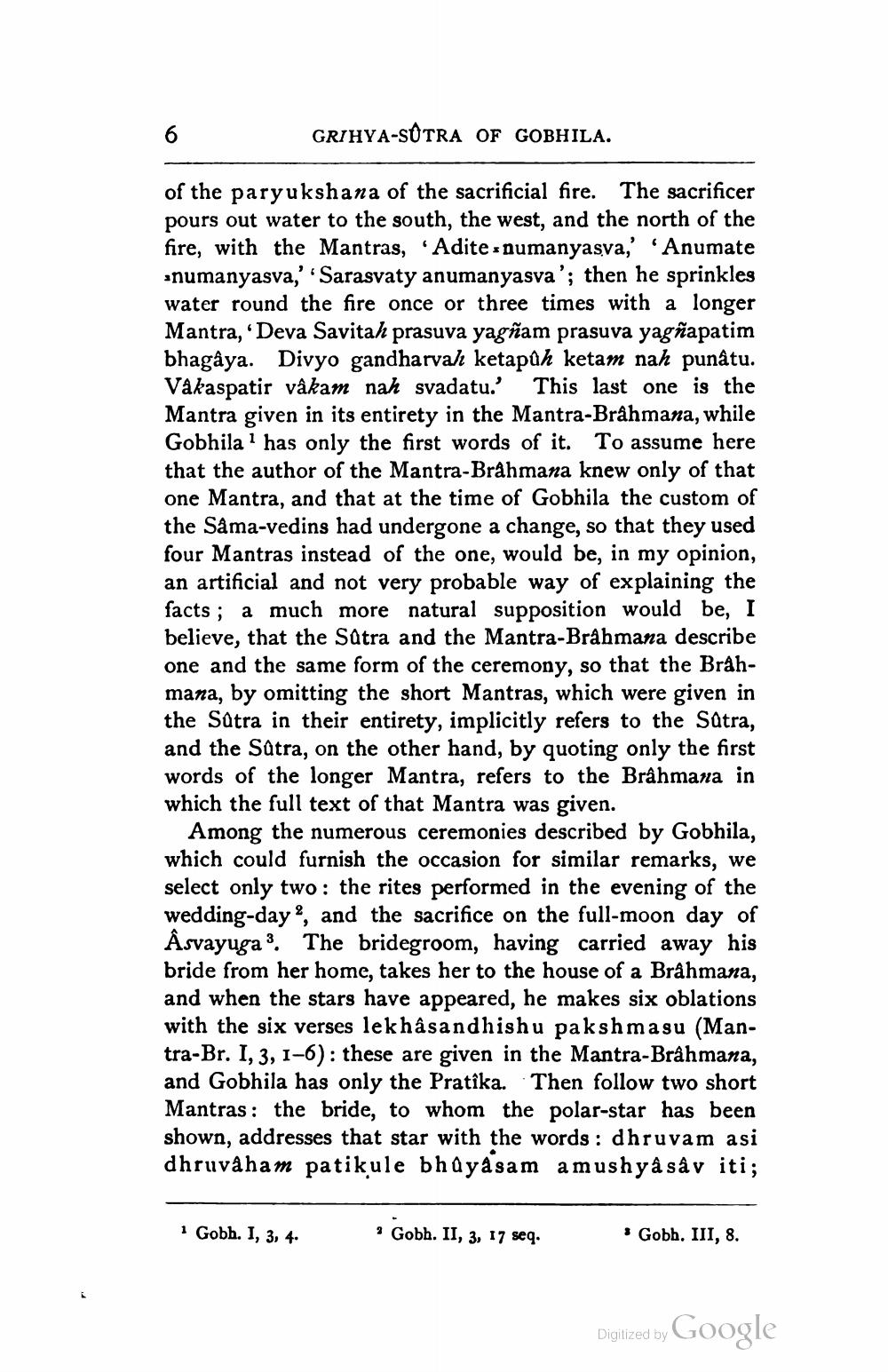________________
GRIHYA-SÓTRA OF GOBHILA.
of the paryukshana of the sacrificial fire. The sacrificer pours out water to the south, the west, and the north of the fire, with the Mantras, Adite numanyasya, Anumate anumanyasva, 'Sarasvaty anumanyasva'; then he sprinkles water round the fire once or three times with a longer Mantra, 'Deva Savitah prasuva yagñam prasuva yagñapatim bhagâya. Divyo gandharva) ketapuh ketam nah punâtu. Vakaspatir vâkam nah svadatu.' This last one is the Mantra given in its entirety in the Mantra-Brâhmana, while Gobhila 1 has only the first words of it. To assume here that the author of the Mantra-Brahmana knew only of that one Mantra, and that at the time of Gobhila the custom of the Sâma-vedins had undergone a change, so that they used four Mantras instead of the one, would be, in my opinion, an artificial and not very probable way of explaining the facts; a much more natural supposition would be, I believe, that the Satra and the Mantra-Brahmana describe one and the same form of the ceremony, so that the Brahmana, by omitting the short Mantras, which were given in the Satra in their entirety, implicitly refers to the Satra, and the Satra, on the other hand, by quoting only the first words of the longer Mantra, refers to the Brâhmana in which the full text of that Mantra was given.
Among the numerous ceremonies described by Gobhila, which could furnish the occasion for similar remarks, we select only two: the rites performed in the evening of the wedding day and the sacrifice on the full-moon day of Åsvayugal. The bridegroom, having carried away his bride from her home, takes her to the house of a Brahmana, and when the stars have appeared, he makes six oblations with the six verses lekhâsandhishu paksh masu (Mantra-Br. I, 3, 1-6): these are given in the Mantra-Brâhmana, and Gobhila has only the Pratîka. Then follow two short Mantras: the bride, to whom the polar-star has been shown, addresses that star with the words : dhruvam asi dhruva ham patikule bhayasam a mushyâ sâv iti;
i Gobh. I, 3, 4.
? Gobh. II, 3, 17 seq.
• Gobh. III, 8.
Digilized by Google




